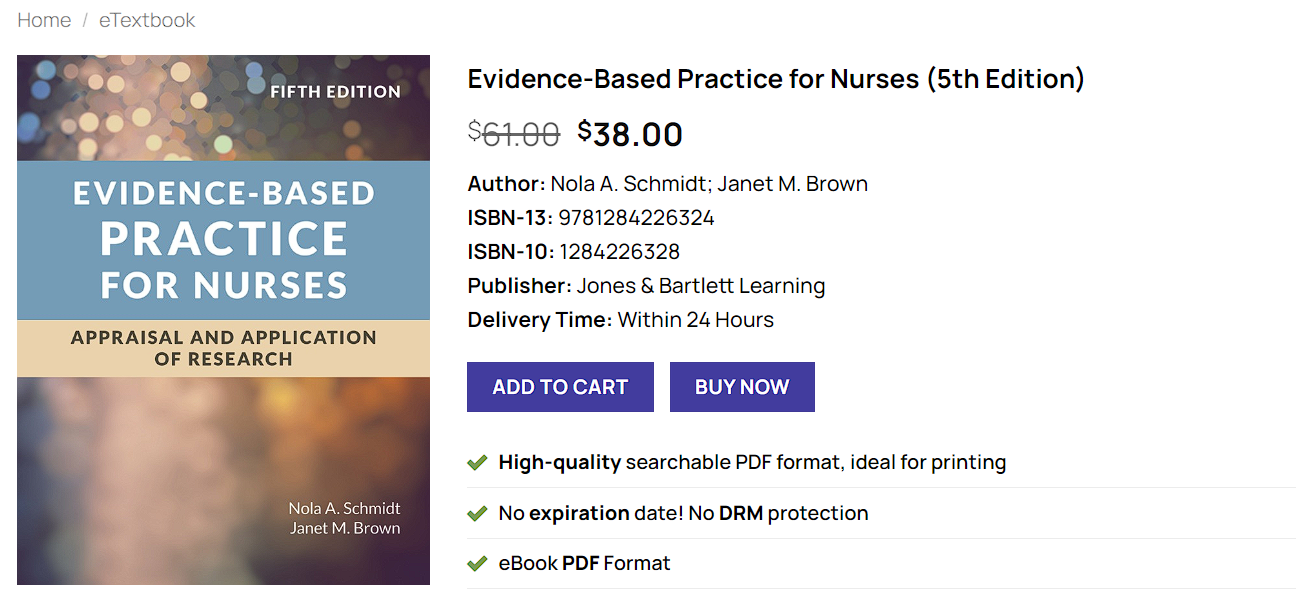Evidence-Based Practice for Nurses 5th Edition healthcare landscape continues to evolve, nurses play a crucial role in delivering high-quality patient care. Evidence-based practice (EBP) has become an integral part of nursing, guiding clinical decision-making and improving patient outcomes. The 5th edition of “Evidence-Based Practice for Nurses” provides a comprehensive framework for nurses to integrate the latest evidence into their practice. This article explores key concepts and principles presented in this edition, offering valuable insights for nurses seeking to enhance their EBP skills.
Understanding Evidence-Based Practice
At the core of evidence-based practice is the integration of clinical expertise, patient values, and the best available evidence to make informed healthcare decisions. The 5th edition emphasizes the importance of nurses critically appraising research findings, considering patient preferences, and applying their clinical expertise to deliver individualized care. By incorporating evidence-based interventions, nurses can optimize patient outcomes and contribute to the advancement of nursing practice.
The Role of Research in Evidence-Based Practice
Research serves as the foundation of evidence-based practice, providing the empirical evidence that informs clinical decision-making. The 5th edition delves into the significance of research in nursing, highlighting the different types of studies, research methodologies, and the hierarchy of evidence. Nurses are encouraged to stay updated with the latest research findings and leverage high-quality evidence to guide their practice. By understanding research principles, nurses can critically evaluate studies and determine the applicability of findings to their patient population.
Implementing Evidence-Based Practice in Clinical Settings
One of the key principles advocated in the 5th edition is the seamless integration of evidence-based practice into clinical settings. Nurses are urged to collaborate with interdisciplinary teams, share best practices, and participate in quality improvement initiatives. By fostering a culture of EBP within healthcare organizations, nurses can contribute to standardizing care practices and achieving better patient outcomes. The 5th edition also emphasizes the use of technology and data analytics to monitor the effectiveness of evidence-based interventions and drive continuous improvement.
In conclusion, Evidence-Based Practice for Nurses 5th Edition equips nurses with the essential knowledge and skills to embrace EBP in their daily practice. By embracing the key concepts and principles presented in this edition, nurses can elevate the quality of care they deliver and positively impact the overall healthcare environment. As EBP continues to shape the future of nursing, staying abreast of the latest edition’s insights is paramount for nurses committed to delivering evidence-based, patient-centered care.

